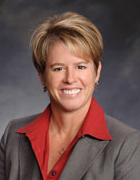
By SDCN Staff
Sacramento, CA–Governor Gavin Newsom Thursday announced that he will convene local leaders in mid-November to review the state’s collective approach to homelessness and identify new strategies to better address the growing homelessness crisis.
Until this convening, the state will hold on providing the remaining third round of Homelessness Housing, Assistance and Prevention (HHAP) grants.
“Californians demand accountability and results, not settling for the status quo,” said Governor Newsom. “As a state, we are failing to meet the urgency of this moment. Collectively, these plans set a goal to reduce street homelessness by 2% statewide by 2024. At this pace, it would take decades to significantly curb homelessness in California – this approach is simply unacceptable. Everyone has to do better – cities, counties, and the state included. We are all in this together.”
Altogether, the plans result in just a 2% decrease in homelessness over four years statewide. While some plans show local leaders taking aggressive action to combat homelessness, others are less ambitious – some plans even reflect double-digit increases in homelessness over four years. The governor is calling all local jurisdictions together for a meeting in mid-November to coordinate an approach that will deliver more substantial results. The meeting will be an opportunity for city, county, and state leaders to discuss what works, as well as to identify barriers that inhibit progress, and strategies to remove them.
The third round of HHAP grants provides a share of $1 billion to every county, Continuum of Care, and the 13 largest cities in the state, on the condition that each local government has a plan approved by the state that reduces the number of unsheltered homeless individuals and increases permanent housing.
The state has so far provided over $1.5 billion of flexible emergency aid to address homelessness through the Homeless Emergency Aid Program and the first two rounds of HHAP funding. Now, for the first time, recipients of the third round of HHAP funding have new requirements and must create a Homelessness Action Plan that addresses, in detail, local actions to prevent and reduce the number of individuals experiencing homelessness at the community level. The plans must include a landscape analysis that assesses the current number of people experiencing homelessness in a given community and identify all existing programs, and all sources of funding aimed at tackling this crisis. Additionally, the plans must include outcome-driven results and strategies for achieving these goals using clear metrics to track success.
The HHAP program is part of a $15.3 billion, multi-year state effort to turn the tide on homelessness – an all-of-the-above approach that includes cutting red tape and funding the largest expansion of homeless housing in California history. Newsom has taken steps to address homelessness and housing statewide, providing local governments with more money to address the crisis. Programs like Homekey and Project Roomkey have become national models for getting people off the streets, and at a fraction of the usual cost. In partnership with cities and counties throughout the state, Project Roomkey has sheltered more than 60,000 people since the pandemic began, and Homekey has funded 12,500 units since its inception in late 2020.
Additionally, since September 1, 2021, Caltrans has cleared over 1,600 encampments, cleaning up 2,227 tons of trash, enough to fill more than 40 Olympic-sized swimming pools. The budget Newsom signed earlier this year includes $700 million for encampment resolution grants with $350 million earmarked for assisting those living on state right-of-way property. Also, through Clean California, the governor has invested $1.1 billion to revitalize streets and public spaces through litter abatement and local beautification projects – generating an estimated 10,000 jobs, including for people exiting homelessness, at-risk youth, veterans, formerly incarcerated people, local artists and students.



